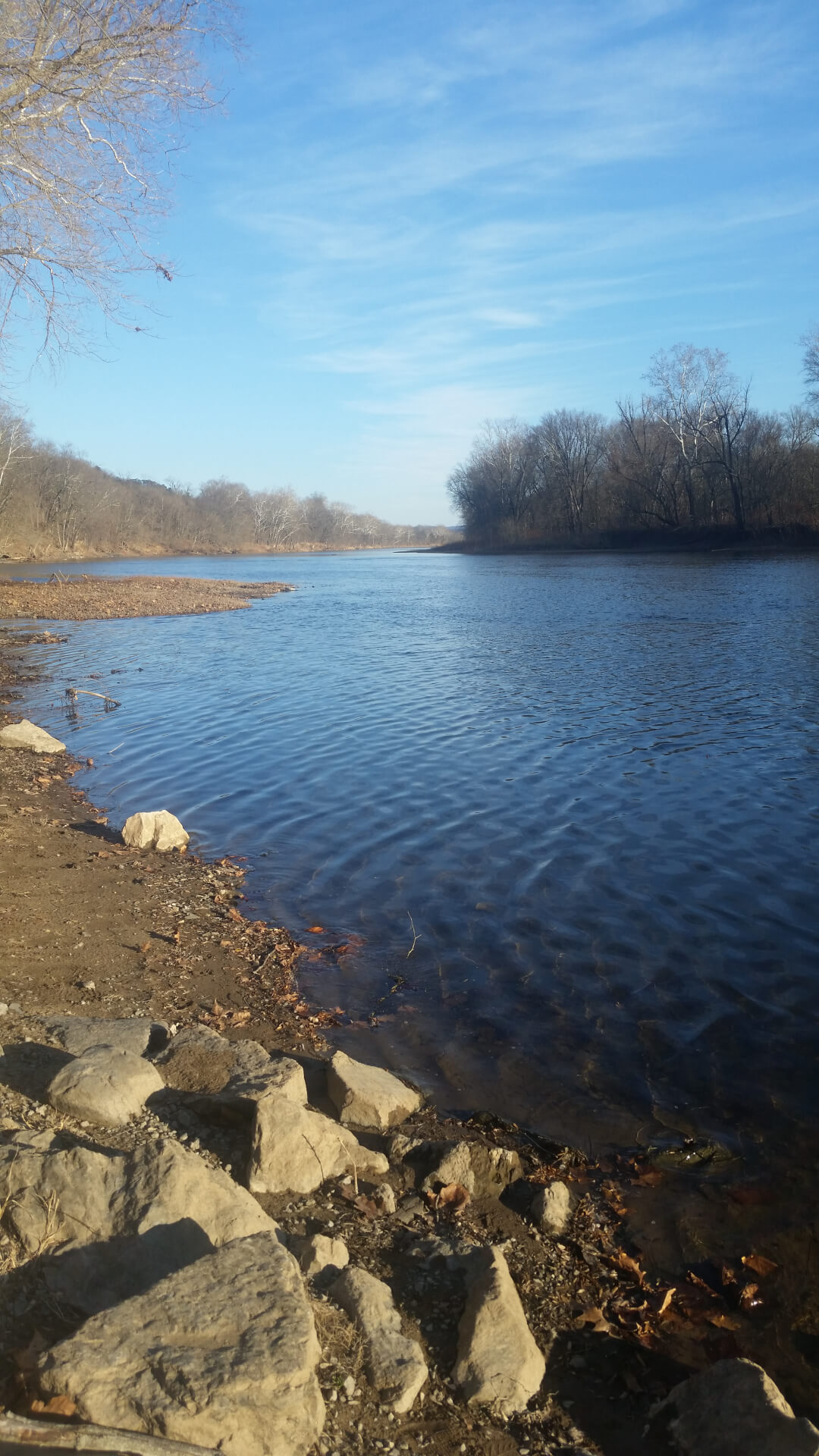Greens Cheer BPW Vote on Potomac Pipeline, But Project May Not Be Dead

Environmentalists were jubilant Wednesday after the Maryland Board of Public Works unanimously put the brakes on a pipeline that would have carried fracked gas through 3.5 miles of Western Maryland.
Officially, the board, consisting of Gov. Lawrence J. Hogan Jr. (R), Comptroller Peter V.R. Franchot (D) and Nancy K. Kopp, voted against a proposed easement that would have enabled the pipeline to pass underneath the Western Maryland Rail/Trail, which runs parallel to the Potomac River.
But some environmentalists and their allies in the legislature suggested that the vote represented a major policy switch for the state – and especially for Hogan, who has been accused by certain green groups of pursuing a pro-fracking agenda, even though he banned the practice in Maryland in 2017.
“For two years, Maryland has been calling on Gov. Hogan to keep his promise and protect Marylanders from the harms of fracking,” said Brooke Harper, Maryland director of the Chesapeake Climate Action Network. “Today, he took a step in the right direction by rejecting a permit for a dangerous fracked-gas pipeline proposed by TransCanada. Hopefully, this signals a reversal of the governor’s prior policy of promoting fracked gas consumption and pipelines in Maryland.”
Environmentalists had been fighting the proposed Potomac pipeline for more than two years. Columbia Gas Transmission, which is owned by TransCanada Corp., wants to run the pipeline from fracking operations in Pennsylvania to a transmission line in West Virginia, across the river from Hancock, Md.
The proposal has already received a water permit from the Maryland Department of Environment and approval from the Federal Energy Regulatory Commission. But Franchot said Wednesday that he and the other members of the Board of Public Works found the arguments against the pipeline “compelling.”
“We were going to subject our state to all the environmental problems of this pipeline and get none of the economic benefits,” Franchot said.
A day before the BPW meeting, 62 lawmakers – all Democrats – wrote to the board, urging the members to defeat the pipeline. But Hogan on Wednesday moved quickly to reject the suggestion that he was swayed by the legislators, saying he was prepared to vote against the pipeline at the last BPW meeting, before the item was pulled from the agenda.
“It had nothing to do with any letter from the legislature, I can assure you,” the governor said.
While environmentalists were celebrating Wednesday, the project is by no means dead.
Scott Castleman, a spokesman for TransCanada, hinted that the company might sue.
He called the BPW vote “unfortunate,” and added, “We will consider our options over the coming days to keep this project on track.” He also insisted that “through proper design and construction our project can be completed in an environmentally responsible and safe manner.”
Some experts who follow energy law suggest that the company could have a sound legal case. TransCanada could cite FERC’s approval for the project to supersede the state BPW vote, enabling the company to claim eminent domain over the rail/trail right-of-way.
About 900 miles of energy pipelines already run underneath Maryland, including a dozen Potomac River crossings.
But the political push to prevent new fracking infrastructure in Maryland has intensified since the state government banned the practice in the 2017 General Assembly session – and since national environmental groups have focused on bigger pipeline projects like the Keystone XL, which would carry oil sands fuel from Canada to the Gulf of Mexico, and the Dakota Access pipeline, in North Dakota. These have become major political causes, and environmentalists in Maryland and surrounding states have tried to take the momentum from those political battles to defeat the Potomac pipeline.
“Marylanders and many of their leaders have consistently opposed the threats fracked gas pipelines pose to our health, water, climate, and communities,” said Joshua Tulkin, Sierra Club Maryland chapter director. “There is no right way to build these dirty, dangerous pipelines and today’s unanimous rejection of Potomac Pipeline reflects that. We shouldn’t be deepening our dependence on dirty fuels like coal, oil, and gas at a time when clean, renewable energy is abundant and affordable and the polluting corporations behind these fracked gas pipelines should wake up and realize that.”
Sen. Robert A. Zirkin (D-Baltimore County) and Del. David Fraser-Hidalgo (D-Montgomery) said they plan to introduce legislation in the upcoming General Assembly session to improve the environmental review and oversight of new pipelines proposed in the state.




 Creative Commons Attribution
Creative Commons Attribution